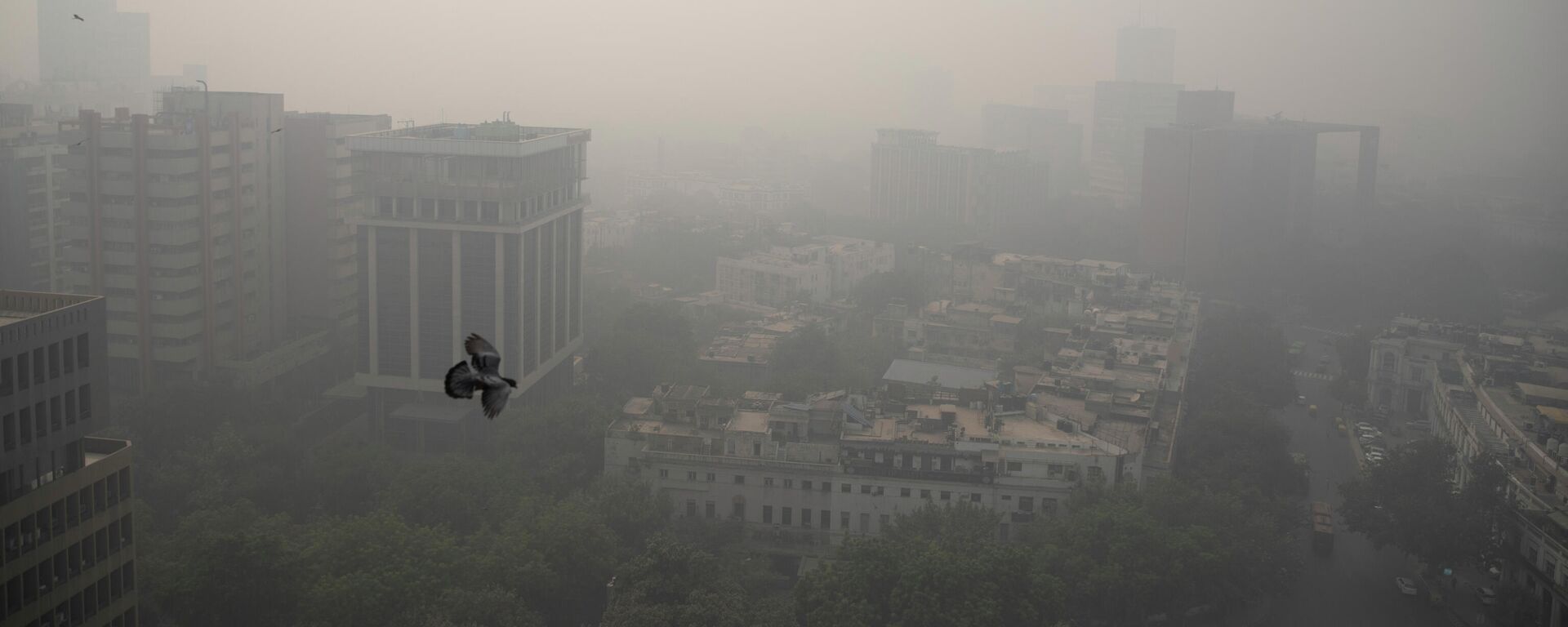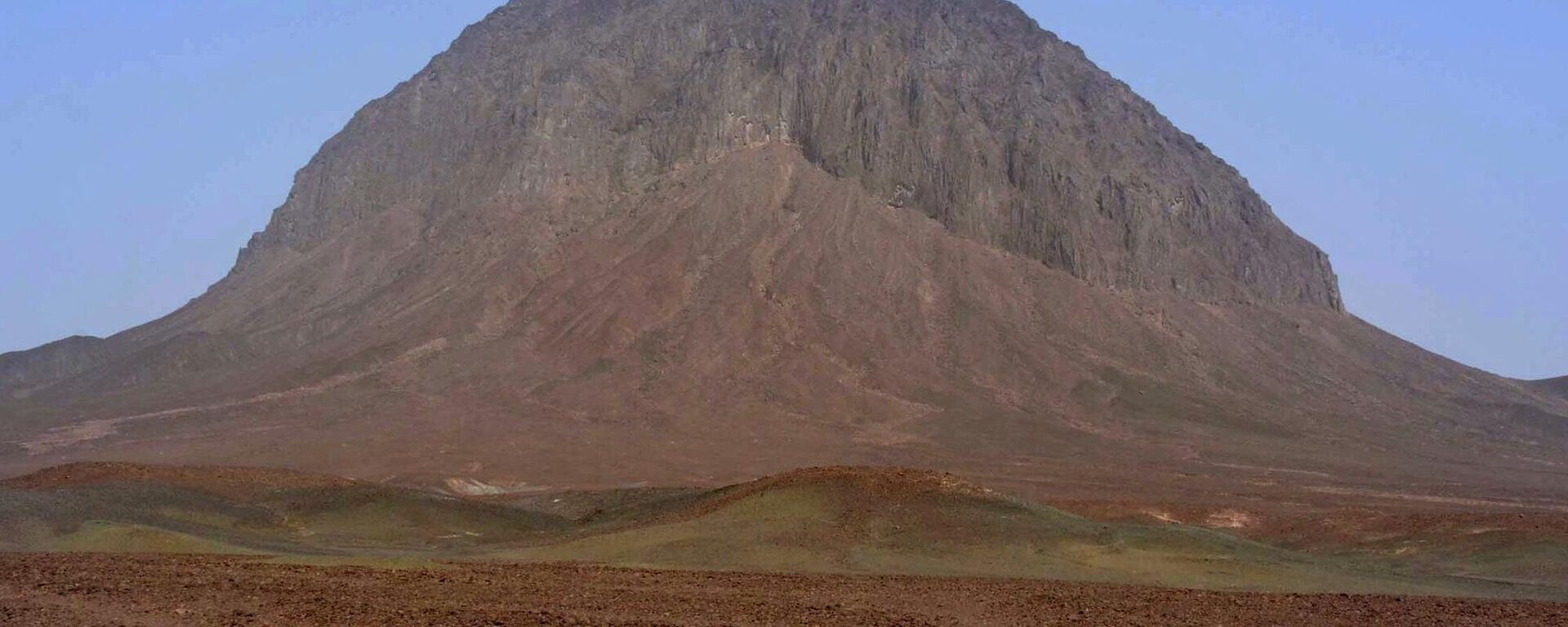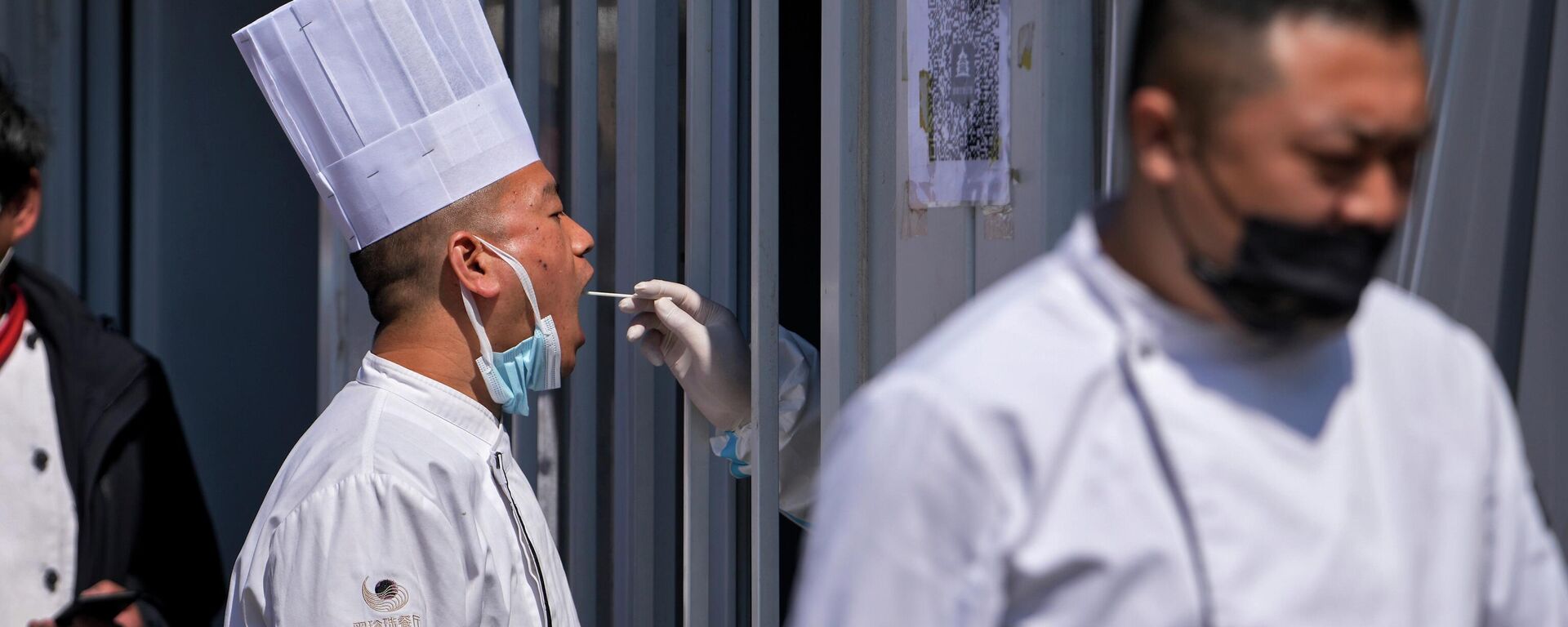https://sputnikglobe.com/20221031/pakistans-pm-heads-to-china-amid-tumultuous-time-for-national-economy-cpec-project-1102852150.html
Pakistan's PM Heads to China Amid Tumultuous Time for National Economy, CPEC Project
Pakistan's PM Heads to China Amid Tumultuous Time for National Economy, CPEC Project
Sputnik International
Prime Minister Shehbaz Sharif is set to embark on his first official visit to China on November 1. It comes at a challenging time for Pakistan, as the country... 31.10.2022, Sputnik International
2022-10-31T10:57+0000
2022-10-31T10:57+0000
2023-02-14T08:48+0000
world
shehbaz sharif
xi jinping
china
china-pakistan economic corridor (cpec)
official visit
economy
pakistan
floods
https://cdn1.img.sputnikglobe.com/img/07e6/0a/1c/1102793799_0:0:3071:1728_1920x0_80_0_0_f2e57979d02ddf85f354cf64eb3d21d9.jpg
Pakistan's leader is set to visit China at an invitation of the outgoing Premier of the State Council, Li Keqiang: the trip is scheduled to last two days, with Pakistan's Foreign Minister, Bilawal Bhutto Zardari, accompanying Shehbaz Sharif.The decision to invite Sharif within a week of Xi Jinping’s new tenure could be counted as a clear sign of close strategic ties between Beijing and Islamabad.Sharif, who will be visiting China for the first time since he took office in April, revealed what he expects from this trip, in an interview with Chinese state media.Meanwhile, Chinese foreign ministry spokesman, Wang Wenbin, also pointed out that Sharif was among the first foreign leaders to be invited to China after last week’s Communist Party congress, at which Xi Jinping secured a third term as its chief and announced a new leadership line-up.During the visit PM Sharif is set to meet President Xi Jinping, Premier Li Keqiang and head of the legislature Li Zhanshu.Better Late Than Never?Although the trip seems to be highly anticipated on both sides, some Pakistani analysts have raised a point that Shehbaz Sharif's invitation to visit China has come quite late.But what could be the possible reasons behind such a delay?For one thing, China has been quite careful since the COVID-19 pandemic and till now has strict protocols in order to keep the virus at bay. Hence, it is highly likely that the delay in invitation was caused due to the pandemic and China's protocols.However, another reason for such a delay could be due to the political turmoil inside Pakistan itself, following the ouster of former Prime Minister Imran Khan, who has since been campaigning for holding snap elections in the country.The domestic political dissonance and economic whirlwind that the country recently faced had put a hamper on its foreign policy and bilateral partnerships with foreign governments.Improving Ties With Foreign PartnersLast Friday, PM Shehbaz Sharif speaking at an event in Islamabad, noted that Pakistan's relations with ‘friendly states’ had ‘suffered’ over the past few years, and that he was making “all-out efforts” to mend ties.Sharif's attempts at proactive foreign policy include his recent three-day visit to Saudi Arabia last week, where he held talks with the Saudi crown prince, Mohammad bin Salman.Pakistan's "deepening challenges" include the catastrophic floods that have left millions of people displaced and enormous amounts of infrastructure including bridges, trains, and roads destroyed.The floods also dramatically affected more than 1,460 health facilities, of which 432 are fully damaged and 1,028 are partially damaged, according to the WHO. What's more, access to health facilities, healthcare workers, and essential medicines and medical supplies is also limited. The calamity is far from over and refugees are in dire need of aid and financial support.On the other hand, political instability has resulted in unprecedented inflation in the country, pushing millions of Pakistanis to the edge of poverty. In this sense, it is no surprise that Sharif is making an effort to improve ties with foreign partners.During his upcoming visit to China, Pakistan’s PM is likely to discuss the debt issues with Xi Jinping. The country asked China to roll over its $6.3 billion debt on Saturday, according to Chinese media reports.Earlier this month, Sharif expressed gratitude to China after it gave more than 644 million yuan ($88 million) in aid to Pakistan, following the devastating floods. Beijing had also sent disaster relief supplies and teams of Chinese experts to help manage the flood's aftermath.What Else Is on the Agenda?Apart from loans and disaster relief efforts, Islamabad and Beijing have a number of projects that will highly likely be approached during Sharif's visit.These include regional security, technology, RMB accounts, the future development of bilateral relations and international and regional issues. But one project is going to be the focal point of the meetings between Sharif and Jinping -- the China-Pakistan Economic Corridor (CPEC).The CPEC has entered its second phase and it is highly likely that the discussion will revolve around the needs of the second phase, including addressing concerns about the security of Chinese nationals in Pakistan and ways to ensure a productive business environment for all the CPEC-related projects.The CPEC begins in China’s Xinjiang province and goes all the way through Pakistan to the port of Gwadar, located in the southern province of Balochistan, which opens into the Arabian Sea.Originally valued at $47 billion, the cumulative value of all CPEC projects has currently amplified considerably, with an estimated worth of $62 billion in 2020.Since its official launch in 2015, the CPEC has completed many major projects across Pakistan, including coal-fired plants, such as in Port Qasim Karachi, solar parks, including the Quaid-e-Azam Solar Park, wind farms, and many more, while at least a dozen more similar energy projects are under construction at the moment.However, CPEC projects have been mired by some unfortunate events over the past several years.Delays & Obstacles in CPECEthnic separatists in Sindh and Balochistan have conducted a series of targeted attacks on Chinese citizens living in Pakistan. These separatists claim that China is involved in the large-scale extraction and exploitation of Pakistan's resources.Pakistani authorities, meanwhile, have implemented strict measures to guard Chinese citizens working on CPEC, but the militant groups have continued to spread chaos and panic, by mainly pursuing soft targets, such as the Chinese dentist and his wife who were shot in Karachi in September.In this regard, the upcoming visit could be beneficial for the CPEC's future: earlier, PM Sharif confirmed that he will discuss expanding the role of the CPEC under the Belt and Road Initiative during his visit to China.He added that he appreciated the rapid development of China in the economic, social and cultural fields, and that he wanted to match the Chinese model of economic development for Pakistan.The views expressed in this column are those of the author and do not necessarily reflect the position of Sputnik.
https://sputnikglobe.com/20220613/chinas-economy-got-26-billion-boost-from-gov-buying-11-billion-covid-19-tests---report-1096288789.html
https://sputnikglobe.com/20221027/invisible-enemy-pakistans-toxic-air-kills-thousands-each-year-1102727330.html
https://sputnikglobe.com/20221021/new-era-of-prosperity-reko-diq-gold-mine-to-bring-in-billions-to-pakistans-balochistan-1102479421.html
china
pakistan
Sputnik International
feedback@sputniknews.com
+74956456601
MIA „Rossiya Segodnya“
2022
Aneela Rashid
https://cdn1.img.sputnikglobe.com/img/07e6/09/0e/1100768477_0:338:606:944_100x100_80_0_0_af078d1bbaf1e33c21f16169e9ed7a5f.jpg
Aneela Rashid
https://cdn1.img.sputnikglobe.com/img/07e6/09/0e/1100768477_0:338:606:944_100x100_80_0_0_af078d1bbaf1e33c21f16169e9ed7a5f.jpg
News
en_EN
Sputnik International
feedback@sputniknews.com
+74956456601
MIA „Rossiya Segodnya“
Sputnik International
feedback@sputniknews.com
+74956456601
MIA „Rossiya Segodnya“
Aneela Rashid
https://cdn1.img.sputnikglobe.com/img/07e6/09/0e/1100768477_0:338:606:944_100x100_80_0_0_af078d1bbaf1e33c21f16169e9ed7a5f.jpg
shehbaz sharif, xi jinping, china, china-pakistan economic corridor (cpec), official visit, economy, pakistan, floods
shehbaz sharif, xi jinping, china, china-pakistan economic corridor (cpec), official visit, economy, pakistan, floods
Pakistan's PM Heads to China Amid Tumultuous Time for National Economy, CPEC Project
10:57 GMT 31.10.2022 (Updated: 08:48 GMT 14.02.2023) Prime Minister Shehbaz Sharif is set to embark on his first official visit to China on November 1. It comes at a challenging time for Pakistan, as the country is struggling with both internal political turmoil and the aftermath of the devastating floods.
Pakistan's leader is set to visit China at an invitation of the outgoing Premier of the State Council, Li Keqiang: the trip is scheduled to last two days, with Pakistan's Foreign Minister, Bilawal Bhutto Zardari, accompanying Shehbaz Sharif.
The decision to invite Sharif within a week of Xi Jinping’s new tenure could be counted as a clear sign of close strategic ties between Beijing and Islamabad.
Sharif, who will be visiting China for the first time since he took office in April, revealed what he expects from this trip, in an interview with Chinese state media.
"I hope the visit will result in further cementing our strategic relations and enhancing business and trade with China," Sharif told China Global Television Network (CGTN).
Meanwhile, Chinese foreign ministry spokesman, Wang Wenbin, also pointed out that Sharif was among the first foreign leaders to be invited to China after last week’s Communist Party congress, at which Xi Jinping secured a third term as its chief and announced a new leadership line-up.
During the visit PM Sharif is set to meet President Xi Jinping, Premier Li Keqiang and head of the legislature Li Zhanshu.
Although the trip seems to be highly anticipated on both sides,
some Pakistani analysts have raised a point that Shehbaz Sharif's invitation to visit China has come quite late.
But what could be the possible reasons behind such a delay?
For one thing, China has been quite careful since the COVID-19 pandemic and till now has strict protocols in order to keep the virus at bay. Hence, it is highly likely that the delay in invitation was caused due to the pandemic and China's protocols.
However, another reason for such a delay could be due to the political turmoil inside Pakistan itself, following the ouster of former Prime Minister Imran Khan, who has since been campaigning for holding snap elections in the country.
The domestic political dissonance and economic whirlwind that the country recently faced had put a hamper on its foreign policy and bilateral partnerships with foreign governments.
Improving Ties With Foreign Partners
Last Friday, PM Shehbaz Sharif speaking at an event in Islamabad, noted that Pakistan's relations with ‘friendly states’ had ‘suffered’ over the past few years, and that he was making “all-out efforts” to mend ties.
Sharif's attempts at proactive foreign policy include his recent three-day visit to Saudi Arabia last week, where he held talks with the Saudi crown prince, Mohammad bin Salman.
While in the Kingdom, Sharif also attended the Saudi Future Investment Initiative Summit, which he confirmed on Twitter: "The present state of the global economy needs new thinking and bold vision to overcome the irritants and forge new paths. There are serious concerns about the threat of global recession hitting the economies. The pandemic and climate-induced disasters have already put immense strains on developing countries. High time the world explored solutions to the deepening challenges through candid dialogue."
Pakistan's "deepening challenges" include the catastrophic floods that have left millions of people displaced and enormous amounts of infrastructure including bridges, trains, and roads destroyed.
The floods also dramatically affected more than 1,460 health facilities, of which 432 are fully damaged and 1,028 are partially damaged, according to the WHO. What's more, access to health facilities, healthcare workers, and essential medicines and medical supplies is also limited. The calamity is far from over and refugees are in dire need of aid and financial support.

27 October 2022, 11:32 GMT
On the other hand, political instability has resulted in unprecedented inflation in the country, pushing millions of Pakistanis to the edge of poverty.
In this sense, it is no surprise that Sharif is making an effort to improve ties with foreign partners.
During his upcoming visit to China, Pakistan’s PM is likely to discuss the debt issues with Xi Jinping. The country asked China to roll over its $6.3 billion debt on Saturday, according to Chinese media reports.
Earlier this month, Sharif expressed gratitude to China after it gave more than 644 million yuan ($88 million) in aid to Pakistan, following the devastating floods. Beijing had also sent disaster relief supplies and teams of Chinese experts to help manage the flood's aftermath.
What Else Is on the Agenda?
Apart from loans and disaster relief efforts, Islamabad and Beijing have a number of projects that will highly likely be approached during Sharif's visit.
These include regional security, technology, RMB accounts, the future development of bilateral relations and international and regional issues. But one project is going to be the focal point of the meetings between Sharif and Jinping -- the China-Pakistan Economic Corridor (CPEC).
The CPEC has entered its second phase and it is highly likely that the discussion will revolve around the needs of the second phase, including addressing concerns about the security of Chinese nationals in Pakistan and ways to ensure a productive business environment for all the CPEC-related projects.
The CPEC begins in China’s Xinjiang province and goes all the way through Pakistan to the port of Gwadar, located in the southern province of Balochistan, which opens into the Arabian Sea.

21 October 2022, 12:21 GMT
Originally valued at $47 billion, the cumulative value of all CPEC projects has currently amplified considerably, with an estimated worth of $62 billion in 2020.
Since its official launch in 2015, the CPEC has completed many major projects across Pakistan, including coal-fired plants, such as in Port Qasim Karachi, solar parks, including the Quaid-e-Azam Solar Park, wind farms, and many more, while at least a dozen more similar energy projects are under construction at the moment.
However, CPEC projects have been mired by some unfortunate events over the past several years.
Delays & Obstacles in CPEC
Ethnic separatists in Sindh and Balochistan have conducted a series of targeted attacks on Chinese citizens living in Pakistan. These separatists claim that China is involved in the large-scale extraction and exploitation of Pakistan's resources.
Pakistani authorities, meanwhile, have implemented strict measures to guard Chinese citizens working on CPEC, but the militant groups have continued to spread chaos and panic, by mainly pursuing soft targets, such as the Chinese dentist and his wife who were shot in Karachi in September.
In this regard, the upcoming visit could be beneficial for the CPEC's future: earlier, PM Sharif confirmed that he will discuss expanding the role of the CPEC under the Belt and Road Initiative during his visit to China.
He added that he appreciated the rapid development of China in the economic, social and cultural fields, and that he wanted to match the Chinese model of economic development for Pakistan.
The views expressed in this column are those of the author and do not necessarily reflect the position of Sputnik.






